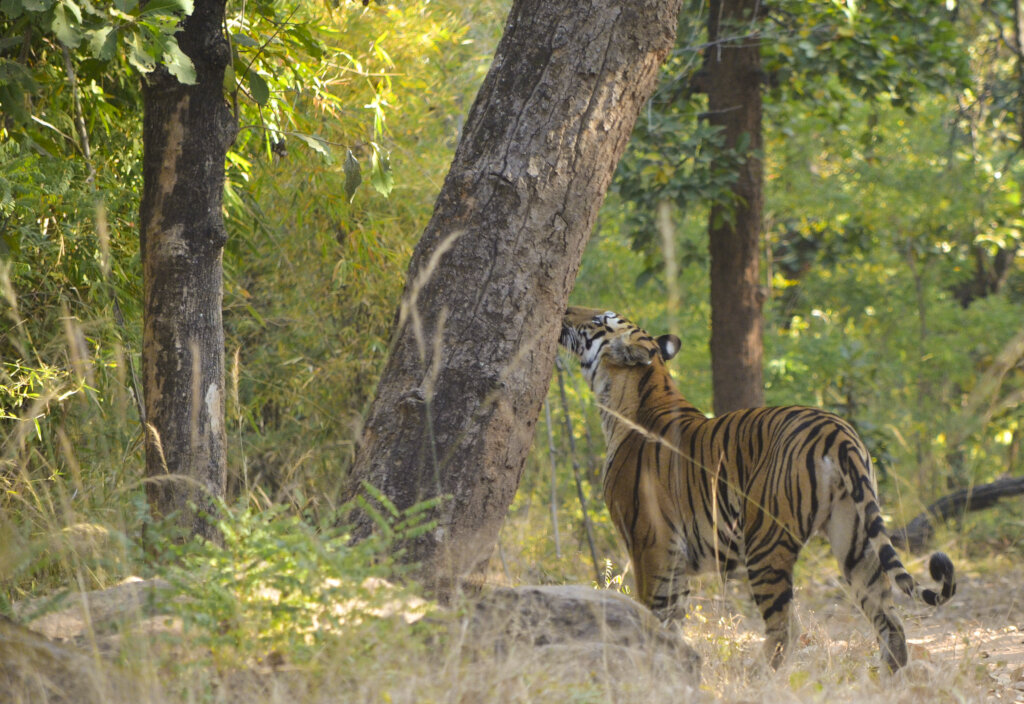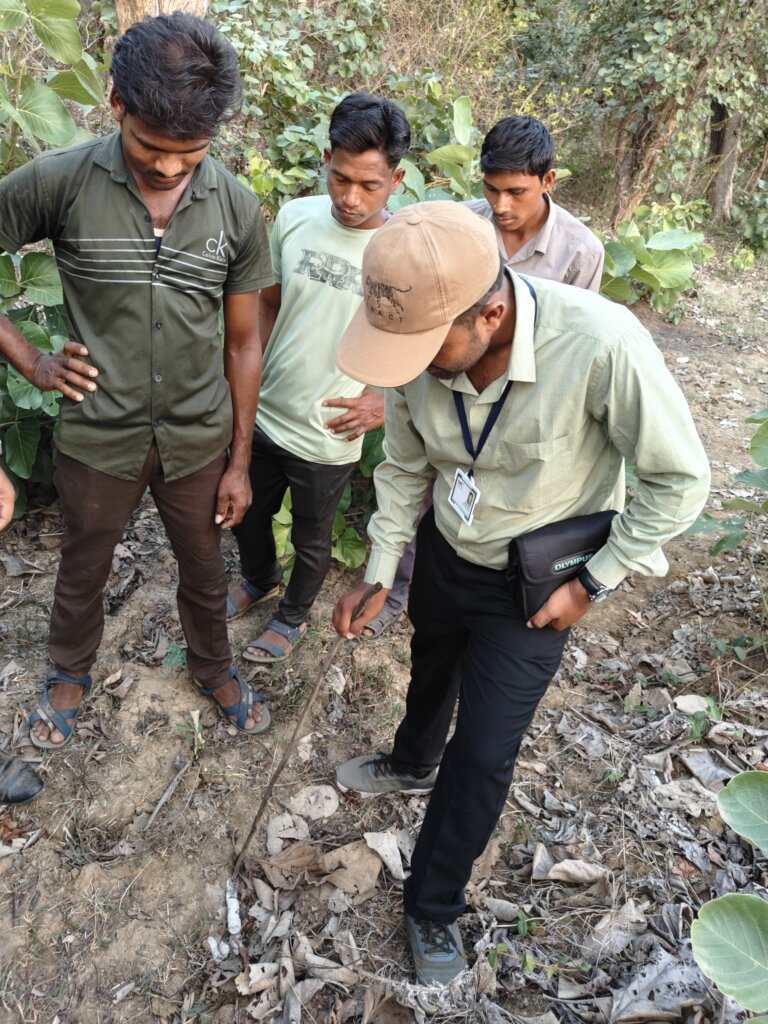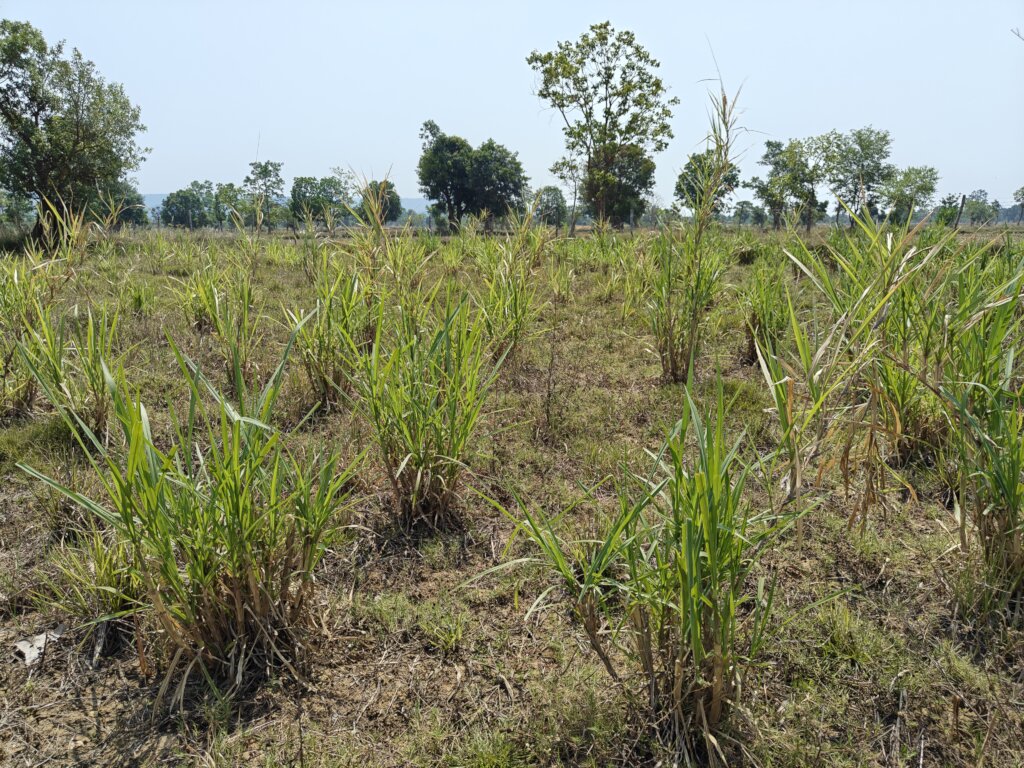By Yashvardhan Dalmia | Network Support Officer for the Satpuda Landscape
Yashvardhan Dalmia, the Network Support Officer for the Satpuda Landscape Tiger Partnership (SLTP), reports on his recent field visits to talk to the people impacted by our conservation work in India.
Visits to the field provide an opportunity to talk to the people on the frontline fighting for the protection of wild animals. As the SLTP Network Support Officer, field visits offer a unique opportunity for me to talk to the field teams and local communities engaged in our work that are living alongside wildlife to understand their concerns and the challenges they face every day. This helps maintain effective communication and coordination between SLTP partners and helps identify ways to improve our conservation activities. During my most recent field visits to villages located in the buffer of Nawegaon Nagzhira and Kanha Tiger Reserves, I caught up with two of our SLTP partners – Tiger Research and Conservation Trust (TRACT) and The Corbett Foundation (TCF).
Along with all our SLTP partners, TRACT and TCF are conducting vital work in the Satpuda Landscape to secure habitat and reduce human-wildlife conflict to enable tigers to thrive:
TRACT implements innovative conservation methods to protect tigers in Central India. Through research, science-based conservation and networking within and outside protected forests, TRACT works closely with the Maharashtra Forest Department and Central Government to monitor wildlife activity and mitigate human–wildlife conflicts.
TCF primarily work with the communities living in and around several Tiger Reserves in central India including Kanha, Bandhavgarh and Satpura. They are involved in grassroots conservation programmes, working with local communities to reduce dependency on the forest and to mitigate human-wildlife conflict issues such as livestock depredation by carnivores, including tigers and leopards, and crop-raiding by herbivores.
The first half of my field visit focussed on catching up with Aman Sahu, TRACT’s new Programme Manager, and meeting Hivraj, TRACT’s experienced field team member. TRACT runs a highly successful Tiger Ambassador scheme that covers an incredible 95 villages in the buffer of the Nawegaon Nagzhira Tiger Reserve. Through the scheme, individuals from the local community are recruited and trained as Tiger Ambassadors to liaise between the community and TRACT, help raise awareness of conservation issues, assist community members in receiving compensation and gather information on human-carnivore conflicts. Tiger Ambassadors also facilitate village discussions about the movements of wildlife, conflict issues and strategies to enable co-existence.
I was invited to join the team on a patrol in the local village of Koshanghat to help determine wildlife presence and identify threats to people in the local area. We observed signs of gaur, wild boar and sloth bears during the patrol, highlighting the importance of the Tiger Ambassador team to the village in supporting people and wild animals to coexist. Furthermore, I met with a number of Ambassador teams to discuss their work and understand the positive conservation outcomes they have observed due to this programme.
During the second half of the trip, I visited TCF’s stall-feeding project in Kanha Tiger Reserve. The project seeks to cultivate ‘green fodder’ (nutritious and fast-growing crops) to feed cattle. By practicing stall feeding, herders do not have to graze their cattle in the forest, reducing the risk and number of livestock attacks by carnivores Furthermore, it also helps reduce the grazing pressure on the forest leading to reduced loss of wildlife habitats. The project also encourages villagers to keep fewer but more productive cattle and helps villagers in purchasing high milk-yielding cows at a subsidized cost. The TCF vet provides regular health check-ups for cattle, as well as treats cattle that have been attacked by large carnivores.
I was able to speak to some of the beneficiaries to understand the impact the project had had on them. All the beneficiaries I spoke to mentioned that the milk yields from their cattle had increased because of the project, whilst simultaneously increasing the overall health of their cattle. They also all agreed that the project had helped provide them with an alternate source of income, giving them greater economic security.
In addition to the high milk yielding cow provided as a part of the programme, I now have two more cows for my diary business. I purchased one of them from my business profits. The current yield per cow is around six to seven litres per day through which I am able to earn a profit of around INR 7,500 per month. Additionally, I have sold cow dung amounting to INR 15,000 till date. We feed our cows green fodder as recommended by the TCF team who also provides regular treatment to them. Earlier, our family did not have a fixed income as it was only dependent on agriculture. Now due to the diary business I have undertaken due to the programme, I have a fixed income which has helped me to look after my family and also upgrade our house – Amarlal Chaudhary, beneficiary of TCF’s stall-feeding project.
It was abundantly clear during my visit to the field that the efforts of the SLTP partners are having a hugely positive impact. Projects such as TRACT’s Tiger Ambassador scheme and TCF’s stall-feeding project are essential for improving people’s livelihoods and enabling coexistence between people and wildlife, including tigers, in Central India. SLTP plays a pivotal role in supporting and connecting likeminded organisations, ensuring India’s tigers can thrive for generations to come.
Links:
Project reports on GlobalGiving are posted directly to globalgiving.org by Project Leaders as they are completed, generally every 3-4 months. To protect the integrity of these documents, GlobalGiving does not alter them; therefore you may find some language or formatting issues.
If you donate to this project or have donated to this project, you can receive an email when this project posts a report. You can also subscribe for reports without donating.
Support this important cause by creating a personalized fundraising page.
Start a Fundraiser

